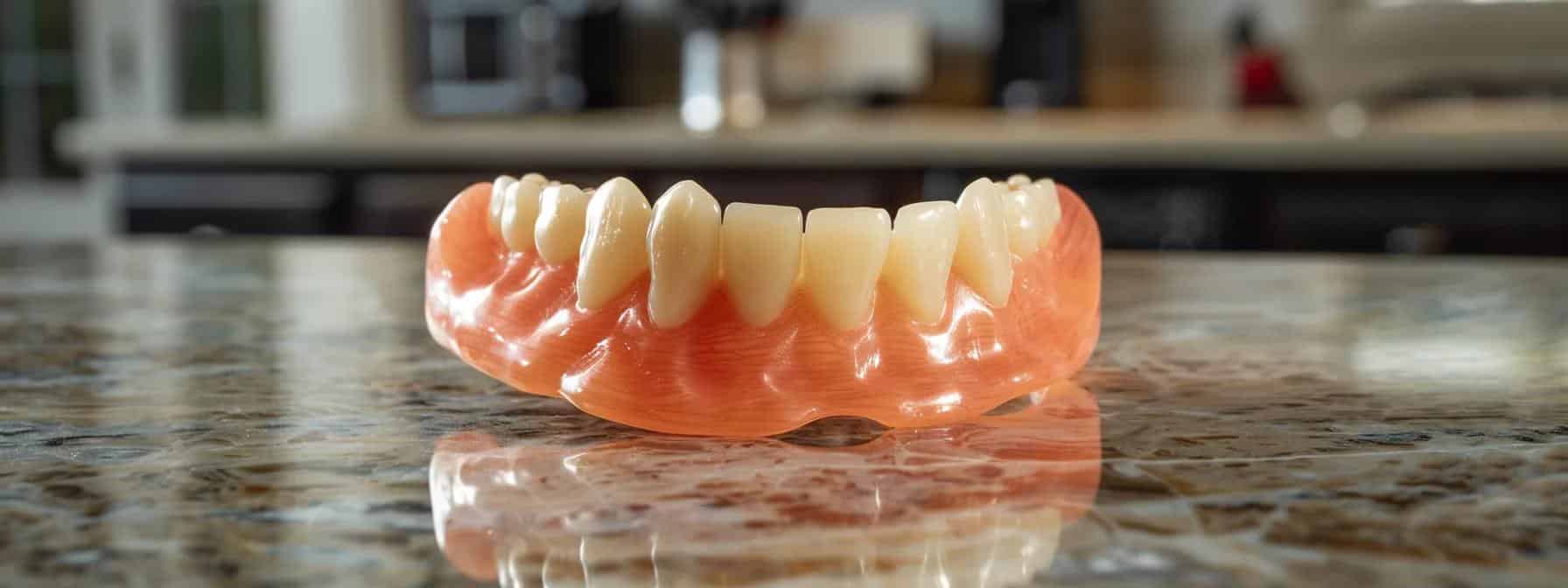Taking care of your oral health plays a significant role in your overall well-being, but teeth change over time due to decay, damage, or aging. For some people, dentures may be the best solution to restore function. But how do you know if it’s time to explore this option? Here are some clear signs that dentures might be a beneficial next step for your oral health.
1. Unhappy With the Appearance of Your Smile
Changes in your teeth can impact your smile. Discoloration, gaps, or crooked teeth may indicate underlying oral health issues that need attention. Dentures are a functional solution designed to improve the appearance of your smile. Whether you need partial dentures or a full set, they effectively address these concerns and restore functionality.
2. Damaged, Decayed, or Missing Teeth
Teeth that are damaged, decaying, or even missing often make basic daily functions difficult. Gum infections, cavities, and decay are often linked to tooth loss and impact the remaining teeth and surrounding tissue. If your teeth are getting weaker or breaking easily, it may point to extensive oral health challenges.
Missing teeth, in particular, often leads to shifting teeth and misalignment. Dentures can help bridge these gaps, restore dental structure, and prevent further damage. Restoring function with properly-fitted dentures can improve chewing and speaking while protecting the integrity of your gums and jawbone over time.
3. Difficulty Biting, Chewing, or Speaking
Teeth play a key role in daily activities like eating and speaking. When these tasks become difficult, it may signal an underlying issue that needs professional attention. Damaged, weak, or missing teeth can significantly limit food choices, potentially leading to an unbalanced diet and poor nutrition over time. This can result in individuals avoiding certain foods and missing certain vitamins and nutrients. Dentures provide the stability and strength needed to restore chewing functionality, allowing individuals to return to a more varied diet.
Beyond eating, missing teeth typically has a noticeable impact on speech, causing difficulties with pronunciation and clarity. This can make communication more challenging. Dentures help support proper word formation, improving speech and enabling clearer, more effective communication. By addressing these issues, dentures enhance functionality and contribute to overall quality of life.
4. Mouth Pain and Gum Irritation
Chronic discomfort or pain in your mouth could signal issues that dentures can help address. Worn-down teeth or gum sensitivity often lead to persistent aches or swelling, which can worsen if left untreated. Tender spots on your gums or difficulty biting without discomfort may indicate extra pressure on your teeth and gums. Dentures provide relief by evenly redistributing biting forces across the mouth. Regular visits to a dental professional can help determine if dentures are the right solution for your oral health.
5. Constant Dental Work
Repeated repairs are often a sign that your teeth are struggling to maintain their strength and structure, and continuing with frequent dental work may only provide temporary relief. While dental work addresses short-term issues, dentures offer a more comprehensive, long-term solution. They give your mouth a fresh start, eliminating the need for ongoing treatments and reducing the risk of future dental complications.
Reclaim Comfort With Dentures
Living with damaged or missing teeth impacts your comfort and the enjoyment of everyday life. Dentures provide a path to restored functionality and a beautiful smile designed specifically for you. If these signs sound familiar, visit your dentist to explore your options.
- mylovelyfurryfriend discover expert tips on dog health
- Infectious Diseases Updates – Stay Informed, Stay Protected!
- Wegovy For Weight Loss – A Breakthrough in Managing Obesity!
- Emergency Medicine Forum – A Hub for Fast-Paced Knowledge, Support & Updates!
- Pediatrics Discussions – Insights, Challenges, and Expert Advice for Better Child Health!





Leave a Reply